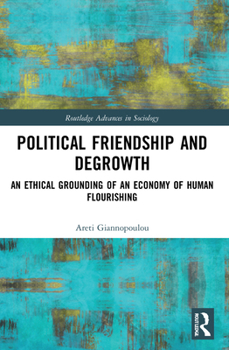Political Friendship and Degrowth: An Ethical Grounding of an Economy of Human Flourishing
(Part of the Routledge Advances in Sociology Series)
Select Format
Select Condition 
Book Overview
Developing a contemporary account of political friendship and synthesizing it with the radical movement of degrowth, this book provides the ethical grounding and the rationale of an alternative economy which serves human flourishing.
The Aristotelian political friendship embodies active concern for the others' well-being that contemporary societies lack; the crucial problems of ecological destruction and global poverty illustrate this friendship deficit. Arguing for the need for re-embracing a friendly civic ethos and re-aligning the economy with moral objectives, the author updates the Aristotelian idea and identifies it with democratic-autonomous political-economic praxis that ensures citizens' self-actualization. Degrowth movement questioning economic growth and productivism, and privileging a simpler life with less material goods, favours political friendship precisely because it nourishes its unconscious substratum namely human instinctual sociality. The call for genuine democratic political praxis that political friendship implies could enable the degrowth movement to retain its radical character and accomplish the shift to an economy which serves life.
The book is worthwhile studying by students and researchers across social sciences and especially by scholars in the fields of sociology, philosophy, and politics, but also a broader readership sensitive to the issues of social and environmental sustainability will find this work extremely interesting.





